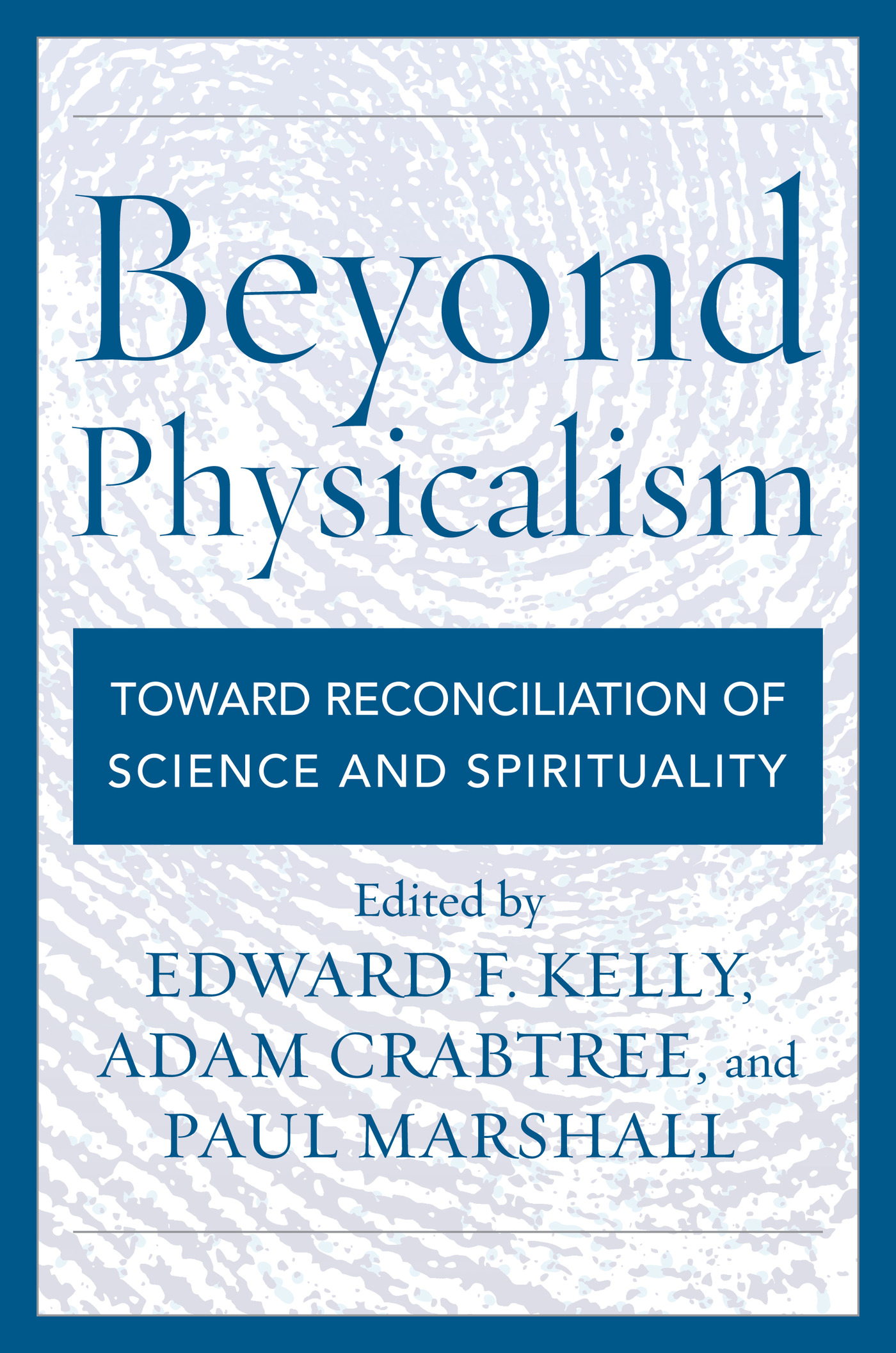Praise for Beyond Physicalism
Beyond Physicalism articulates a cogent and compelling alternative to the distorted all or nothing dichotomy between narrow-minded religious fundamentalisms and an equally dogmatic and rigid scientism.
G. William Barnard, professor of Religious Studies, Southern
Methodist University
Beyond Physicalism lays several stones for the foundation of a new world-view. No book has gone further toward reconciling science and spirituality.
William Eastman, former Director of SUNY Press
This book offers a third way, reconciling science and spirituality without diluting either. Robust and evidence based, this work by highly respected scholars and scientists demolishes orthodoxies right and left, allowing the reader a way forward past the Scylla and Charybdis of religious and scientific fundamentalisms.
David J. Hufford, professor emeritus, Penn State College of Medicine
Beyond Physicalism is much more than a book. It is the intimate expression of a decade and a half of critical but collegial conversations between established scientists and professional humanists around some of the most important but still unsettled questions facing humanity: those involving the nature of mind or consciousnessthat is, the nature of us.
Jeffrey J. Kripal, J. Newton Rayzor Professor of Religious Studies, Rice University
Some of the philosophical problems that occupied William James longest and deepest, along with solutions he thought most promising, have literally been written out of history. This volume presents the first serious collective attempt since James death to revive his project. Its chapters are characterized by an intellectual ethos reminiscent of the father of modern American psychology himself: sympathetic open-mindedness made fruitful through disciplined, calm and penetrating rigor.
Andreas Sommer, junior research fellow in History and Philosophy of Science, Churchill College, University of Cambridge
Kelly and colleagues first book, Irreducible Mind, carefully documented research supporting the notion that consciousness is not simply a product of neural activity. This second book, Beyond Physicalism, brings together key scholars in the areas of quantum physics, psychology, Asian philosophy and mysticism to thoughtfully explore how mystical and psi experiences can fit into an expanded scientific worldview.
Marjorie Woollacott, professor, Department of Human Physiology and Institute of Neuroscience, University of Oregon
Beyond Physicalism
Beyond Physicalism
Toward Reconciliation of Science
and Spirituality
Edited by Edward F. Kelly,
Adam Crabtree, and Paul Marshall
ROWMAN & LITTLEFIELD
Lanham Boulder New York London
Published by Rowman & Littlefield
A wholly owned subsidiary of The Rowman & Littlefield Publishing Group, Inc.
4501 Forbes Boulevard, Suite 200, Lanham, Maryland 20706
www.rowman.com
Unit A, Whitacre Mews, 26-34 Stannary Street, London SE11 4AB
Copyright 2015 by Rowman & Littlefield
All rights reserved. No part of this book may be reproduced in any form or by any electronic or mechanical means, including information storage and retrieval systems, without written permission from the publisher, except by a reviewer who may quote passages in a review.
British Library Cataloguing in Publication Information Available
Library of Congress Cataloging-in-Publication Data
Beyond physicalism : toward reconciliation of science and spirituality / edited by Edward F. Kelly, Adam Crabtree, and Paul Marshall.
pages cm
Includes bibliographical references and index.
ISBN 978-1-4422-3238-9 (cloth : alk. paper)ISBN 978-1-4422-3240-2 (electronic)
1. Religion and science. I. Kelly, Edward F., editor. II. Crabtree, Adam, editor. III. Marshall, Paul (Paul David), editor.
BL241.B445 2015
201'.65dc23
2014039921
 TM The paper used in this publication meets the minimum requirements of American National Standard for Information Sciences Permanence of Paper for Printed Library Materials, ANSI/NISO Z39.48-1992.
TM The paper used in this publication meets the minimum requirements of American National Standard for Information Sciences Permanence of Paper for Printed Library Materials, ANSI/NISO Z39.48-1992.
Printed in the United States of America
Preface and Acknowledgments
The rise of modern science has brought with it increasing acceptance among intellectual elites of a picture of reality that conflicts sharply both with everyday human experience and with beliefs widely shared among the worlds great cultural traditions. A particularly stark but influential early statement of the emerging picture came from philosopher Bertrand Russell:
That Man is the product of causes which had no prevision of the end they were achieving; that his origin, his growth, his hopes and fears, his loves and his beliefs, are but the outcome of accidental collocations of atoms; that no fire, no heroism, no intensity of thought and feeling, can preserve an individual life beyond the grave; that all the labours of the ages, all the devotion, all the inspiration, all the noonday brightness of human genius, are destined to extinction in the vast death of the solar system, and that the whole temple of Mans achievement must inevitably be buried beneath the dbris of a universe in ruinsall these things, if not quite beyond dispute, are yet so nearly certain, that no philosophy which rejects them can hope to stand. Only within the scaffolding of these truths, only on the firm foundation of unyielding despair, can the souls habitation henceforth be safely built. (The Free Mans Worship, 1903)
There can be no doubt that this bleak vision continues to dominate mainstream scientific thinking and has contributed to the disenchantment of the modern world with its multifarious attendant ills. Prominent recent spokesmen include, for example, Nobel prize winners such as theoretical physicist Steven Weinberg, for whom the more the universe seems comprehensible, the more it also seems pointless, and physicist-turned-neurobiologist Francis Crick, whose astonishing hypothesis declares that You, your joys and your sorrows, your memories and your ambitions, your sense of personal identity and free will, are in fact no more than the behavior of a vast assembly of nerve cells and their associated molecules. As Lewis Carrolls Alice might have phrased it: Youre nothing but a pack of neurons.
Overt conflict between science and religion has erupted sporadically since the first stirrings of science centuries ago, and recent years have witnessed a series of heavily publicized attacks on nearly all things religious by well-meaning defenders of Enlightenment-style rationalism. Such persons clearly regard themselves, and current mainstream science itself, as reliably marshaling the intellectual virtues of reason and objectivity against retreating forces of irrational authority and superstition. For them the truth of the picture sketched above has been demonstrated beyond reasonable doubt, and to think anything different is necessarily to abandon centuries of scientific progress, release the black flood of occultism, and revert to primitive supernaturalist beliefs characteristic of bygone times.
Contributors to the present volume share a very different view. We believe it takes astonishing hubris to dismiss en masse the collective experience and wisdom of a large proportion of our forebearers, including persons widely recognized as pillars of all human civilization, and we are united in believing that the single most important task confronting all of modernity is that of

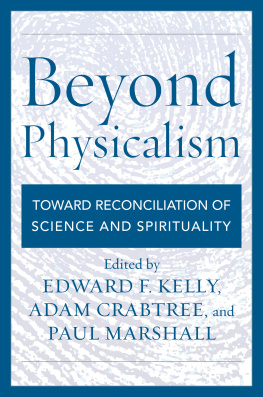
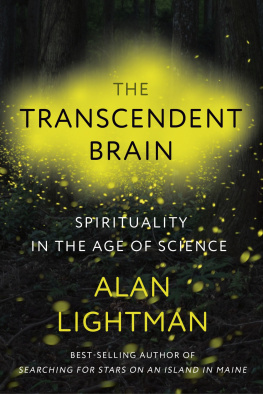
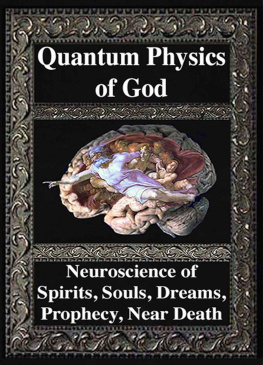

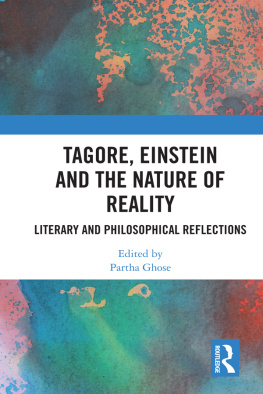
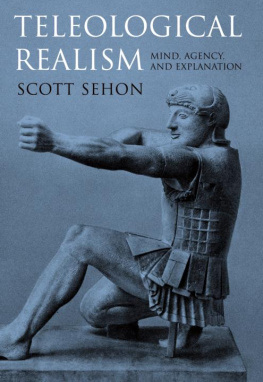
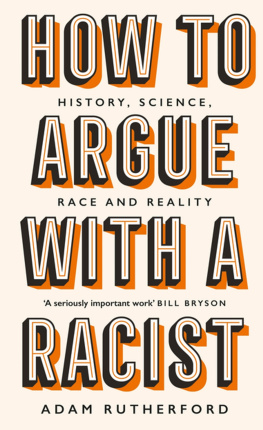
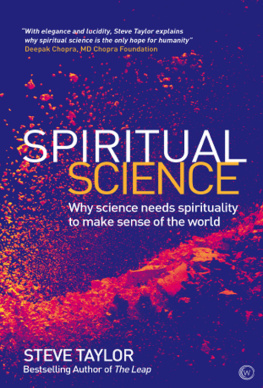
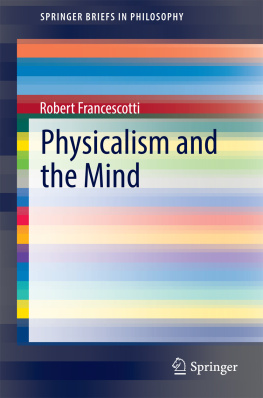
 TM The paper used in this publication meets the minimum requirements of American National Standard for Information Sciences Permanence of Paper for Printed Library Materials, ANSI/NISO Z39.48-1992.
TM The paper used in this publication meets the minimum requirements of American National Standard for Information Sciences Permanence of Paper for Printed Library Materials, ANSI/NISO Z39.48-1992.